The 10 Buddhist Precepts (Dasa-sīla)
The ten precepts of Buddhism serve as guidelines for individuals to honor themselves and others, to strive for excellence, to find inner peace, and to discern between right and wrong. These precepts form a way of life rather than a mere set of rules. They offer valuable advice and spiritual direction, aiming to enhance one's conduct and mindset in everyday life.
To begin with, what is the reason for the 10 Buddhist precepts?
The meaning behind each precept is deeply rooted in Buddhist philosophy and teachings. They encompass principles of non-harming, honesty, abstention from misconduct, and cultivation of mindfulness. Each precept serves as a moral guideline, encouraging practitioners to lead a life of compassion, integrity, and wisdom.
1. Having Courage in Life to Achieve Goals
We know that life can be very difficult. Some deadlocks and failures can push people to give up. However, to avoid regret, one should never give up. Indeed, regret leads to suffering. Thus, to avoid suffering throughout life, it is advisable to always have courage. The essential thing is to learn from past mistakes and not repeat them to succeed in everything one undertakes. Furthermore, having courage also allows one to flourish and be happy.
Moreover, it is essential to have goals to succeed in life. Having a spirit of daringness allows us to achieve them. The ideal is to write down small goals every month. It is much simpler than thinking about big goals.
2. Not Comparing Oneself to Others

One of the rules of Buddhism is also to have one's own identity, culture, and even belief. Indeed, one should avoid following and envying others. By doing so, one cannot have peace of mind. Moreover, one puts oneself in a negative state while betraying oneself. What one can do is draw inspiration from the results of others to motivate oneself to move forward. However, it is advisable to turn a little to the past in order not to make the same mistakes again.
To progress in life, one must have one's own values, convictions, and above all, always maintain one's honor. The latter is the most precious quality that any person should have. It inspires consideration and respect from others. By always defending honor, one can easily have values that allow them to be unique.
Comparing oneself to others is a negative attitude according to the rules of Buddhism. It leads to competition and rivalry. This kind of behavior is prohibited in Buddhist faith. Buddhists believe that each person has their own peculiarities, qualities and flaws, and intellectual capacities. Comparing them is not exhaustive and does not make much sense.
However, the success of others can be inspiring for oneself. One can draw a lesson from the positive results of others' actions. It is a means of achieving one's own project. Therefore, one can draw inspiration from the good deeds of others, but one cannot compare. Comparing can harm peace of mind. Humans tend to be jealous of others' success instead of taking note.
3. Choosing Friends Wisely

In the rules of Buddhism, it is imperative to select friends wisely. It is an excellent way to progress. It should be noted that there are friends who are not reputable, encouraging one to do anything. Having a bad friend will hurt the mind. It can lead, for example, to taking substances that alter the mind like alcohol, drugs, tobacco, and many others. The choice of friends depends mainly on the places one frequents. In private clubs, libraries, or cultural places, one can find commendable people to be good friends. They easily give better advice to accomplish goals compared to bad friends who lead to failures.
The choice of partner and spouse is also included in this rule of Buddhism. It is important to choose partners not for their outward beauty but for their inner beauty. External beauty is only a facade, something impermanent and superficial. If a person wants to follow a Buddhist way of life, they must prudently choose their intimate relationships based on moral values.
4. Avoiding Selfishness

One of the rules that Buddhist monks must also follow is to think of others. Indeed, one should not only think of oneself in life. Selfishness can hurt loved ones or those around us. If a person is selfish all the time, they end up losing friends or even love. Therefore, to avoid losing relationships, one should always perform a good deed of serving others and especially not expect anything in return. Showing generosity for no particular reason can also be real happiness for oneself. There are many opportunities to offer help. For some people, listening to them with interest can already be a great help. Moreover, other ways to avoid selfishness are to learn to share, to let others take the lead, and especially to be happy for them when they succeed. Jealousy should not be shown in Buddhist religion.
Feeling into another person's shoes can change a person's life. One cannot truly be in another person's mind or body, but one can try to understand them by trying to see things from their perspective. Obviously, one must make the effort to think about their surroundings and identify their concerns and suffering. When we identify their problem, we can have the ability to help them. The more empathy and curiosity we show for what others are going through, the faster we understand them and only think about helping and giving freely without expecting anything in return. This is the best technique to avoid selfishness.
5. Having Self-Confidence

It is necessary to have self-confidence in life according to the prescribed rules of Buddhism. This can help in relationships with others and in making important decisions. However, this kind of quality is acquired, not innate. Thus, one must learn to have full confidence in their potential and values. To achieve this, one must know oneself well, assert their personality, and accept compliments from time to time.
To have self-confidence, the person must accept their worth and potential compared to others without being egocentric. They must admit that they are, for example, better in this kind of domain and publicly affirm it. It is also important to demonstrate one's talents and specialties without any embarrassment or shyness so that others are aware of success, skills, and potential. Once you have gained the trust of others, you naturally trust yourself.
6. Not Placing Too Much Importance on Objects
In Buddhist religion, objects do not take up much space. They can influence emotions and the way of seeing life. If one becomes too attached to them, they can end up being controlled and transformed into a rigid person. We are mainly talking here about objects that are no longer used and are still kept. The same goes for material and monetary values. Buddhist rules are totally selfless. Buddhists believe that wealth like gold, silver, and power lead to vanity and lust. It is the main obstacle to happiness. Buddhist teaching focuses more on humility and simplicity. It is the best remedy for seeking happiness. Indeed, the dematerialization of thoughts and spirit is one of the foundations of Buddhist philosophy.
Read also: Tibetan Buddhism
7. Taking Care of Each Other
Altruism is also part of the rules of Buddhism. Taking care of each other with empathy and love is one of the basic things to create one's own happiness and that of others. Helping others is a virtue in the practice of Buddhism. This involves charity, almsgiving, and taking care of someone we know or don't know. A person who respects the rules of Buddhism must support those around them in times of need or simply out of sympathy. Good deeds are highly encouraged in the Buddhist religion because they are an excellent path to happiness. People are often very happy after doing a good deed. It is this positive energy that leads to self-satisfaction and perfection. Indeed, giving makes a person happier than receiving. It is in this context that Buddhist rules encourage the performance of good deeds towards others, society, one's friendships, and especially one's family.
8. Putting Effort into Professional Development

Buddhist belief states that nothing comes without effort. It adopts determinism as the philosophy of the religion. This kind of thinking defines that there is no consequence without cause. It is the cause and effect relationship. To achieve something, one must make efforts and work hard. According to Buddhists, idleness is the shortest path to failure. Only perseverance and diligence are the sources of success.
In reality, success does not come from doing nothing. It must be sought and found through personal challenge, willpower, and ardor. One must always decide to succeed every day. One must be willing to work to get what they want and need. If sacrifices are necessary, they must be made as long as they are worthwhile. This is how goals are achieved and dreams are realized. Perseverance of spirit is therefore a moral value of Buddhist practice.
9. Focus on the Present Moment
The life rule of Buddhists is simple. They focus more on the present than on the past or the future. They keep their mind on the current moment during meditation. The reason Buddhists focus on the present moment is to always have their feet on the ground while being aware of spiritual realities beyond. Focusing on the past can harm spiritual balance. A person who lives in the past is never happy in their life. They will forever remain nostalgic and melancholic without hope and with much regret. On the other hand, a person who focuses on the future is more of a dreamer.
They tend to be idle and lazy. They are not aware of the present moment and wait for things to come to them. A person who focuses too much on the future is also too ambitious and vain. They already anticipate what will happen tomorrow when humans do not have the ability to predict the future. Buddhists also tend to embrace their failures. They learn from each project that fails and rectify them later on.
10. Not Fear Death

The last rule to follow when one is a Buddhist is not to fear death. It is important to understand that life ends, and this is the natural reality. Everyone without exception can die at any moment. This situation must be kept in mind. It is possible to avoid thinking too much about it by living life fully, enjoying each passing day with loved ones and friends. The best ways to overcome this type of fear are through humility, inner peace, and realism.
According to Buddhist belief, death is part of life. Death is also the beginning of a previous life, hence reincarnation. Buddhist faith believes that after death, the mind incarnates into other bodies and undergoes rebirth. This is akin to the awakening and enlightenment of Buddha during his meditation under the sacred tree. Therefore, one should not fear death if they follow Buddhist rules, as it is not the end but the beginning of a new life.




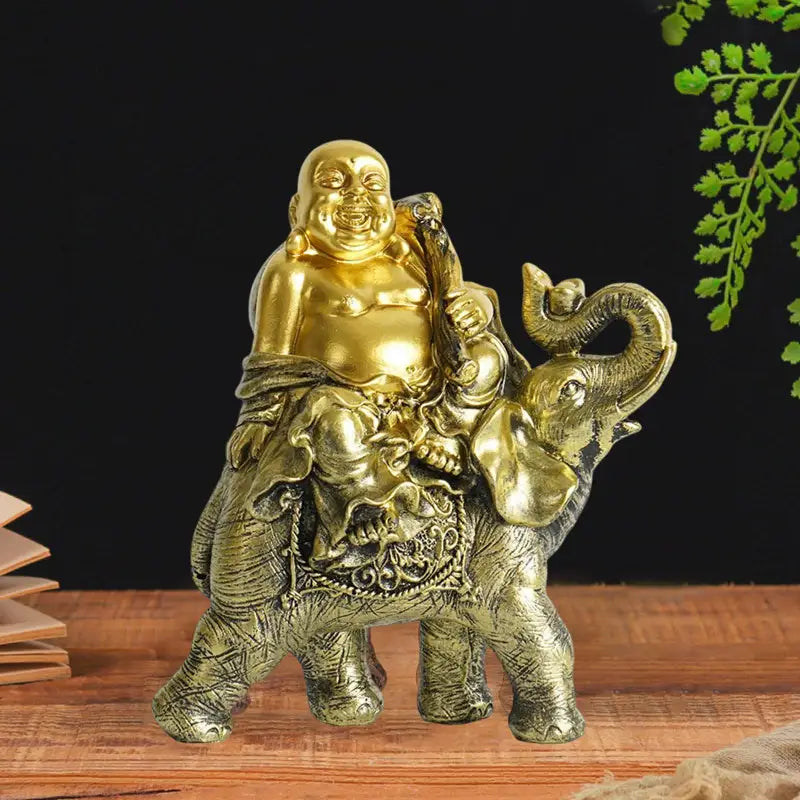
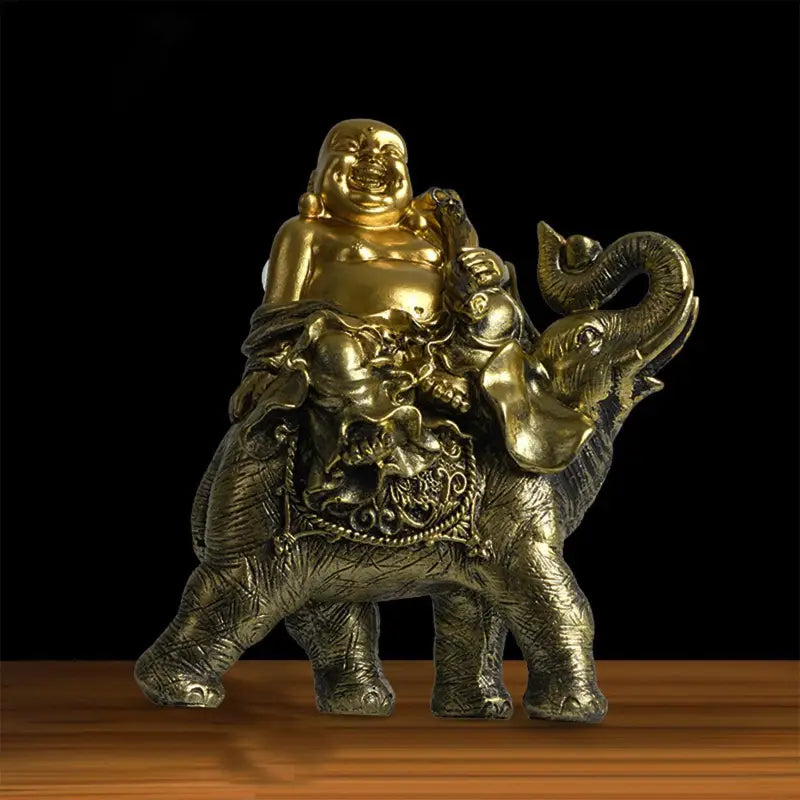


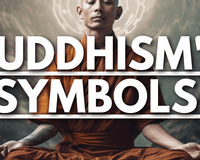
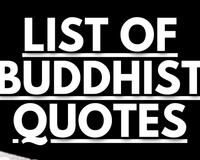
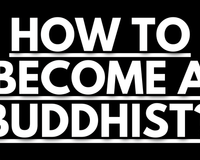

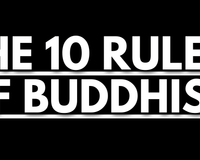












9 comments
Eva
@Leyla bnf : En disant cela tu prouves ton ignorance à propos des autres religions, et de surcroît tu accentues ton égoïsme à l’ego sur-dimensionné en pensant que ta religion est la meilleure sous un article qui n’en fait absolument pas mention. Alors, non, l’islamisme n’est pas la seule religion, loin de la, et oui, les gens ont le droit de croire en ce qu’ils veulent, aucune religion n’est au dessus d’une autre au risque de te décevoir. Apprends à aimer, avant de déconseiller et/ou propager ta haine des autres.
Leyla Bnf
Je vous déconseille soyons tous muslmans pour aller au paradis insha’Allah
Zèto
Très bon site je recommande fortement. Informations très pertinentes, très utiles pour les travaux d’école ou le travail.
Dropsy guy
Le. Bouddhisme. M interesse. Parce que. Je. Suis. Sensible. Trop. Anxieux. C est. Pour. Cela. Je. Voudrais. Trouver. La. Paix. Interieure.
MPM
Quels que soient votre détermination et vos croyances , vous n’empêcherez pas le soleil de briller .
Au-delà de soi-même , il y a la force de vie , cette énergie universelle,si puissante et si douce; qui surgit du néant.
MPM
wendy ydnew
J’ai réalisé il y a très peut de temps que les humains dans les cimetières était pour la plus part mort.
Kanaa Martin
La premiere règle est assimilée à la 04 ème règles mais si non je trouve ses règles pleines de bon sens et de sagesses
MBOTE
Je pense que les bouddismes sont plus objectifs dans ce sens je pense que cela permet de mieux vivre
Lizzy
Bouddhisme is a very very and I repeat very important religion
be a Bouddha